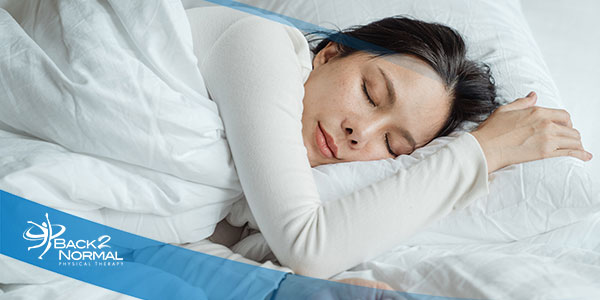
The ultimate health hack is a good night’s sleep.
With a relationship to practically every system in your body, getting a good — or bad — night of sleep has an impact on everything from how your body absorbs food to how it regulates blood sugar, recalls information, and controls inflammation, among other things. Obesity, heart disease, cancer, arthritis, thyroid dysfunction, stroke, and Alzheimer’s disease are all chronic disorders that have been linked to sleep deprivation. In fact, sleep deprivation has been linked to a 48 percent increased risk of heart disease, a fourfold increased risk of catching a cold, and a threefold increased risk of type 2 diabetes. Sleep is critical for your body’s healing and capacity to function optimally on a daily basis.
The quality of your sleep is equally as important as the quantity, if not more so. Even if you sleep for eight hours, if the quality of your sleep is poor, it will affect your long-term health. If you count sheep for hours at a time, are restless all night, or wake up in the wee hours of the morning, you’re probably not getting the most out of your 8 hours. If you get enough sleep, your body will cycle through all four stages of sleep (non-REM sleep, light sleep, deep sleep, and REM sleep) at least five times. Allowing your body to cycle through each stage completely is critical to getting a good night’s sleep.
It also makes a difference what time you go to bed. Whether you’re a night owl or an early riser, your biochemistry won’t lie to you. Our bodies mend the most between 10 p.m. and 2 a.m., according to studies. Even if you get 8 hours of sleep, sleeping from midnight to 8 a.m. is not as restful as sleeping from 10 p.m. to 6 a.m. This is because your body alternates between non-REM and REM sleep as it cycles through the stages of sleep. Your body spends more time in non-REM sleep, which is the deepest stage of sleep when your body restores and recovers, in the early hours of the night. The length of non-REM sleep reduces as the night progresses, whereas the length of REM sleep increases. As a result, the later you go to bed, the more your body is geared toward lighter, less restful REM sleep.
Aside from the short-term effects, less non-REM deep sleep can have a long-term influence on your health. A network known as the glymphatic system opens up between brain cells while you sleep, literally flushing out hazardous chemicals linked to neurodegenerative conditions. The loss of non-REM sleep as you become older has been linked to glymphatic system dysfunction, which has been linked to an increased risk of Alzheimer’s disease.
Some simple takeaways…
Be consistent with bedtime.
Count backward by 7.5 hours from the time you need to get up in the morning. This equates to five 90-minute sleep cycles, which is the recommended quantity for a restful night’s sleep. Add one hour to that. It’ll be around 8:00 or 9:00 p.m. This is the best time to begin your nighttime ritual winding down, to be sure you are asleep by 10:30 p.m.
Cut off the caffeine – strategically.
Caffeine isn’t necessarily a bad thing, but if you’re having trouble sleeping, you should be more careful about when and how much you intake. Caffeine should be avoided if you suffer from adrenal exhaustion or have problems with your stress hormones. Caffeine becomes a problem when we consume it late in the day and it continues to energize us when we should be sleeping. It’s unlikely that you’ll be able to get a good night’s sleep if your caffeine is still being metabolized in the evening.
Keep cool to cue your body into rest.
The ideal air temperature for a restful night’s sleep is between 60 and 67 degrees. The correct bedding can also aid in temperature control. Cotton traps heat while allowing cool air to travel through in the summer, making it an excellent choice for any region or season. Bamboo mixes have also grown in popularity in recent years, owing to bamboo’s sustainability, inherent antibacterial properties, and ability to absorb moisture. Linen is a better choice for your bedding than satin since it wicks away moisture rather than trapping it.
Ready to improve the quality of your sleep, develop the optimal nighttime routine, and subsequently feel your best everyday? Seek advisement with our specialists, and let us guide you with the most effective practices for your unique needs! We offer a wellness-focused & supportive environment that can help you achieve your goals. Be sure to check our social media and blog updates for regular wellness inspiration, information, offers and support.
The Back 2 Normal blog is an educational resource written by Back 2 Normal employees and professional associates. Back 2 Normal bloggers are professionals who abide by the code of ethics outlined by their respective professional associations. The content published in blog posts represents the opinion of the individual author based on their expertise and experience. The content provided in this blog is for informational purposes only, does not constitute medical advice and should not be relied on for making personal health decisions.






